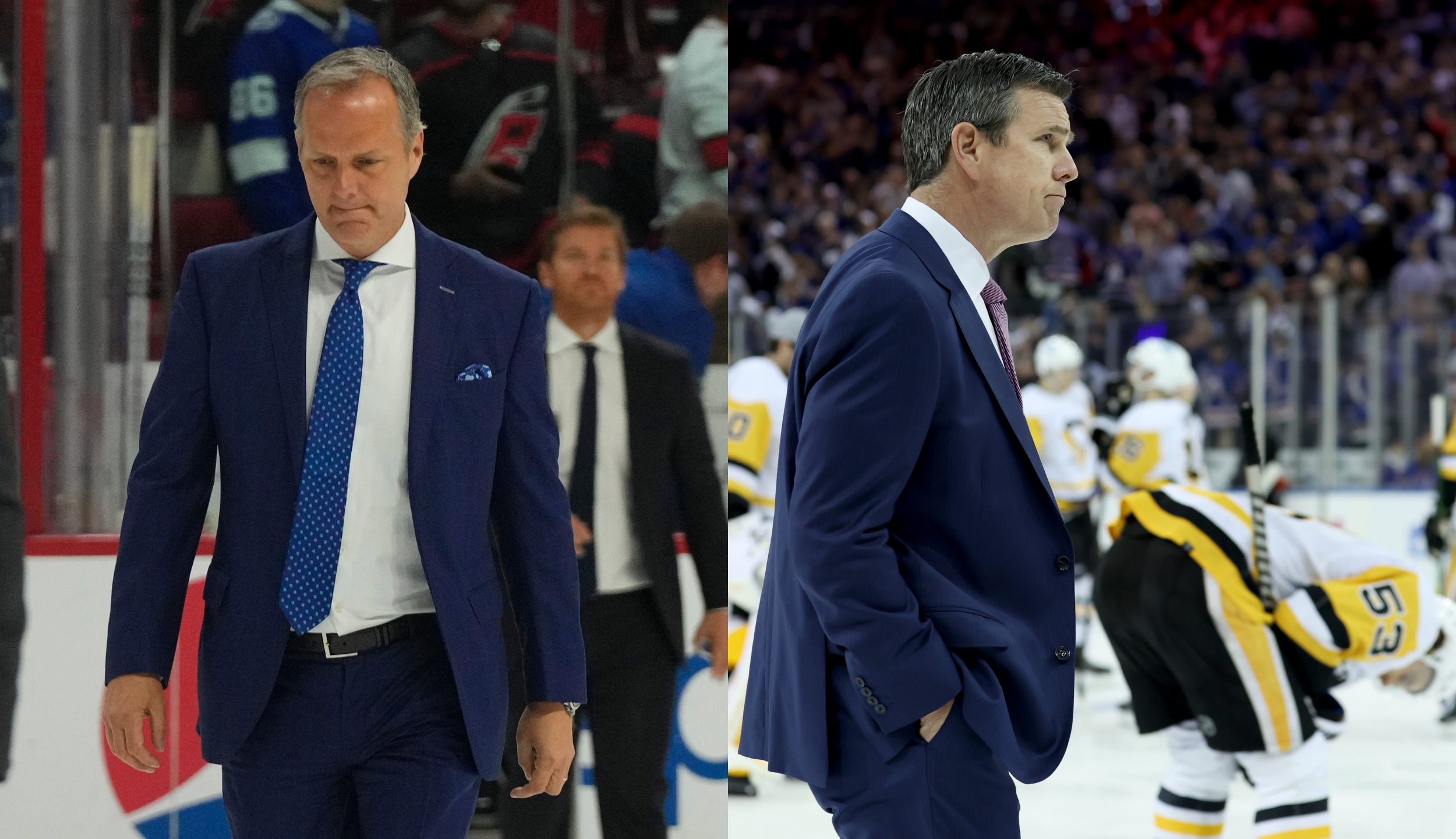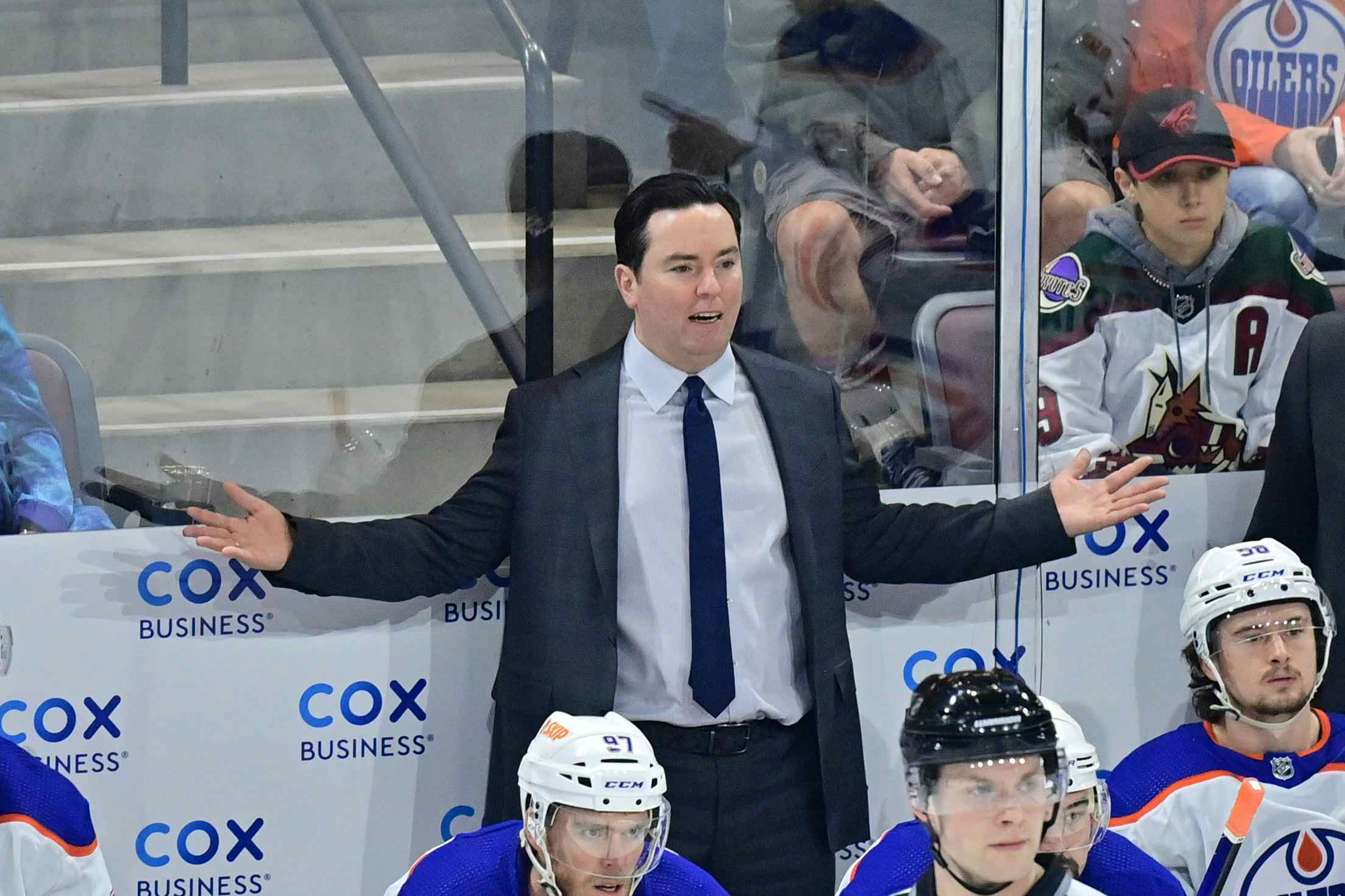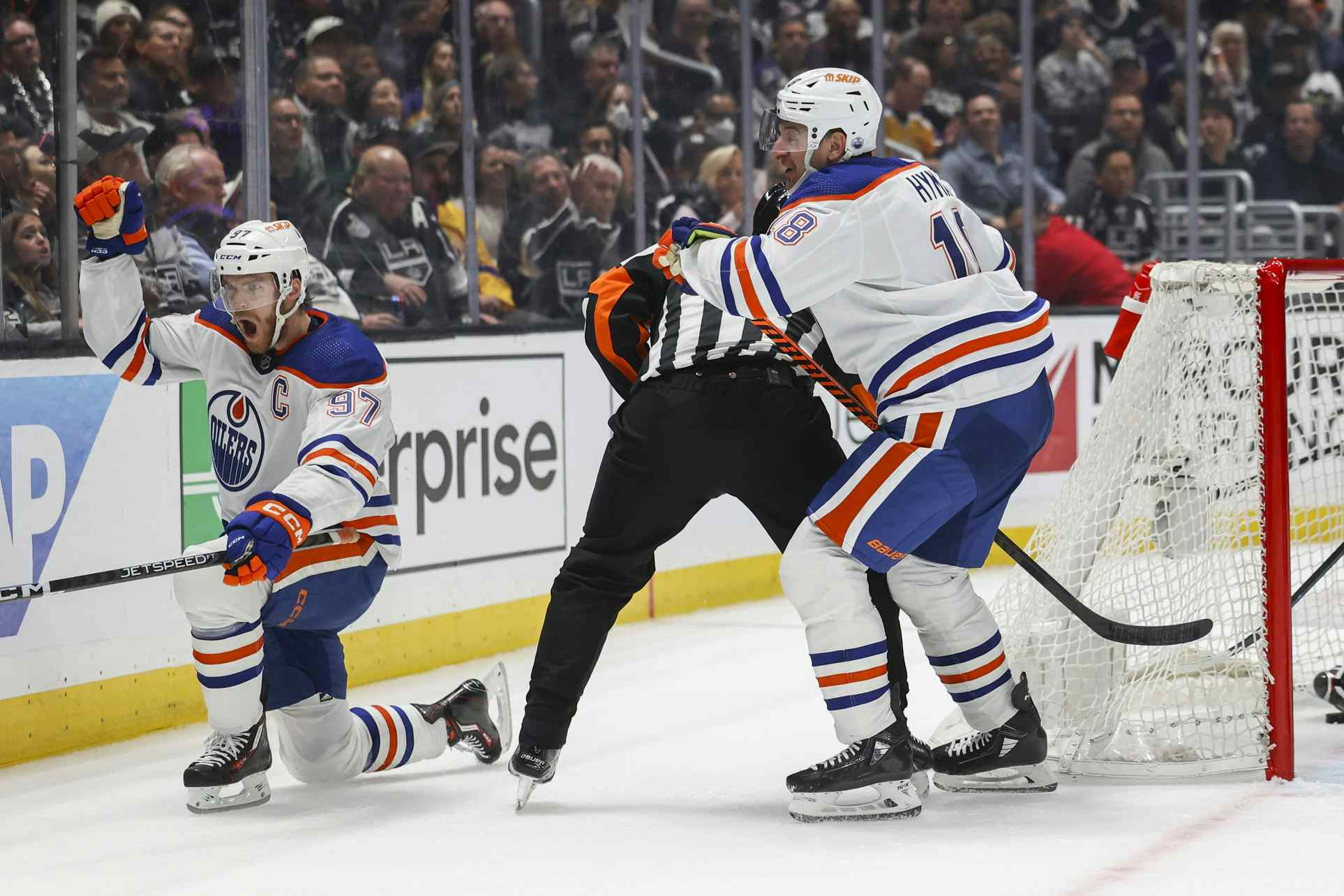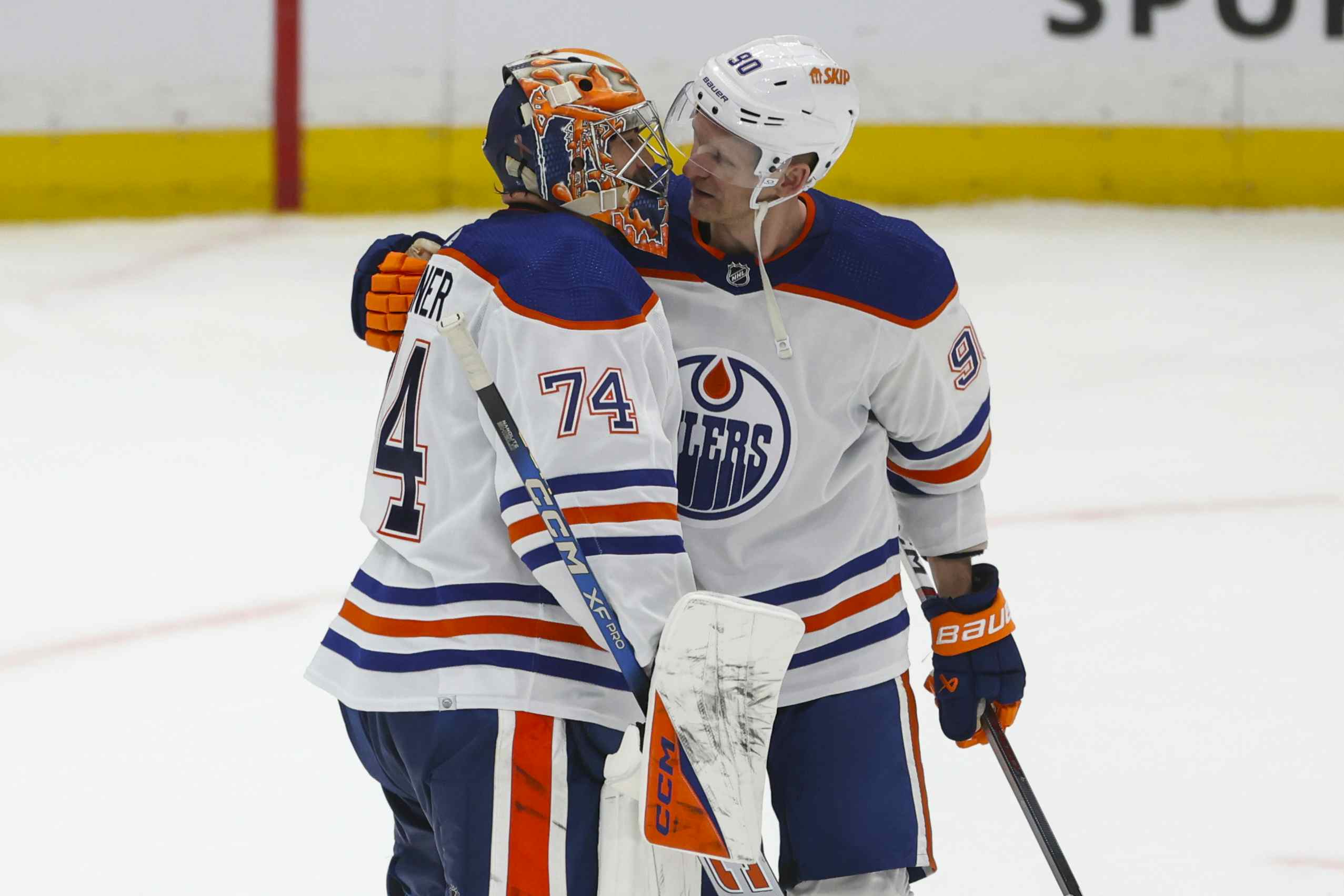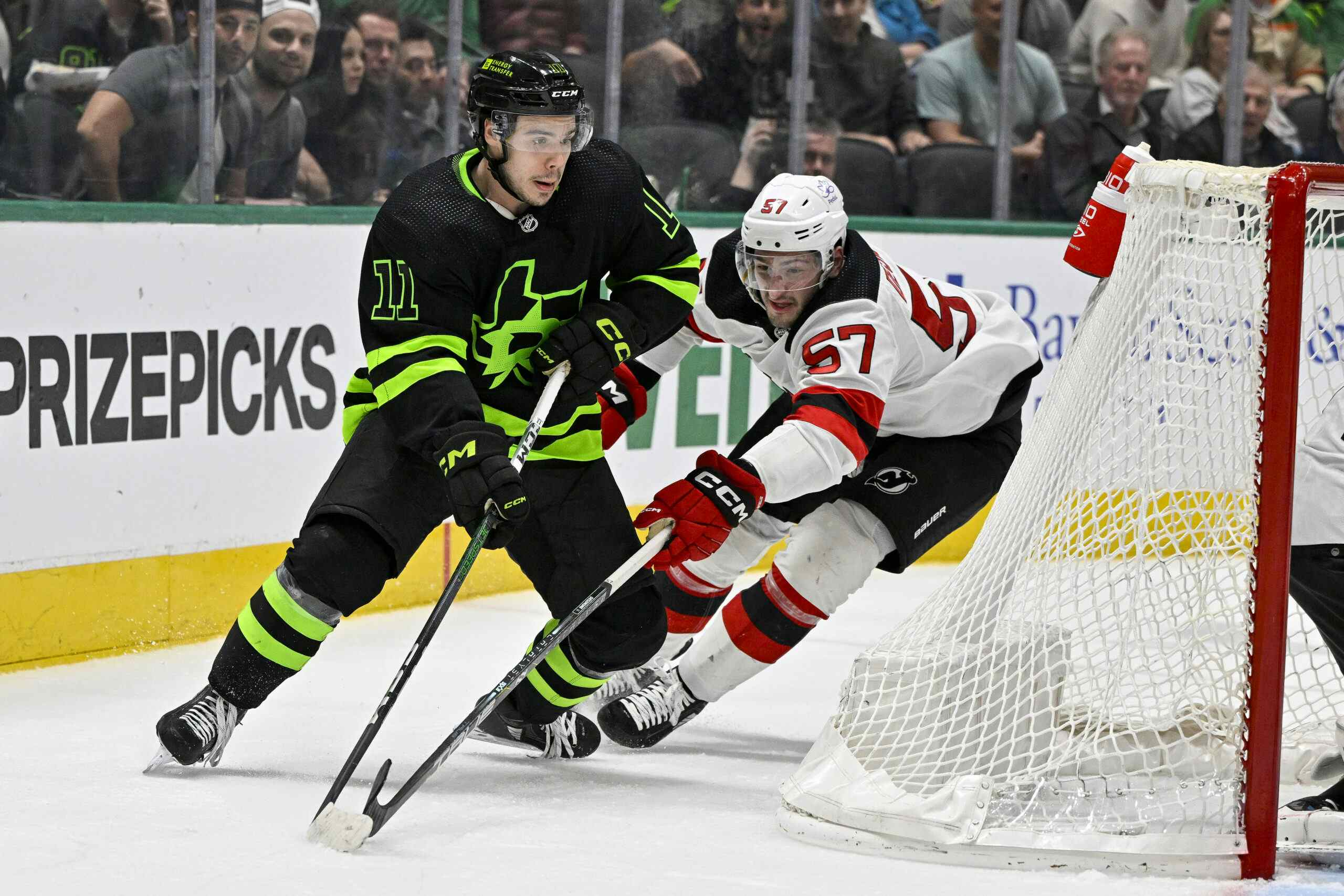HORDICHUK; “RALPH AND I ARE ON THE SAME PAGE.”
By Jason Gregor
11 years ago
Darcy Hordichuk was twenty years old when he was drafted 180th overall by the Atlanta Thrashers in the 2000 draft. His first year of pro hockey was in 2000/2001 when he split 80 games between the Thrashers and the Orlando Solar Bears of the IHL. He got a taste of the NHL, playing 11 games and he fought six times. But most of his first pro season was in Orlando where he played 69 games, scoring 7 goals and 10 points while racking up 369 penalty minutes.
Many say defence is the hardest position to learn in pro hockey, but I’d suggest that being a young tough guy is way more dangerous. Hordichuk fought over 35 times his rookie year in Orlando, but his head coach, Peter Horacek, rewarded him with icetime in the playoffs where Hordichuk tallied 3 goals and 6 points in 16 playoff games. Hordichuk knows his ability and willingness to fight got him his NHL job, but like most fighters the job is much easier when the coach understands how hard the job is.
It is a fine balance for any coach. You want your physical players to be tough and rugged, but they can’t take too many stupid penalties. The players know this, but they also have to know if they cross the line, their coach won’t automatically staple them to the bench or give them a permanent seat in the press box.
When Hordichuk signed a new one-year deal over the weekend, I got the sense from his commentst that he wanted to be better next year, but he also needed a bit longer of a leash. I chatted with Hordichuk on my radio show yesterday, and as always he was very candid.
JG: You did not mince your words over the weekend when talking about your role and that you want to be more gregarious this season. Did you feel that the shackles were on you last season when it came to trying to intimidate the opposition?
DH: I think that it was kind of obvious when you look at different games. You look at when Jared Boll was taking runs at guys and it was 4-0 and we were in 29th place. I think that most of the previous teams that I had played on I would have been given a green light. But when you’re walking that fine line it’s kind of tough because you don’t want to all of a sudden be sitting out the next five or ten games because obviously you’re not buying into the system, or the coach’s system. I’m just excited for the opportunity coming up this year. Tom [Renney] was great for us, he was great for the team and he’s a good man, and I’m just really excited about Ralph [Krueger] coming in.
JG: Have you had conversations with Ralph about you understanding the right time to do it?
DH: I did a couple of times during the season when I got the green light. I talked to Ralphie and he talked to Tom and kind of made it happen so that’s why I feel comfortable and confident heading in this year. And that’s why I chose to re-sign; because I think that you don’t have to be an idiot out there, or be a donkey but as the season goes on and guys are starting to get run a little more you have to kind of draw the line somewhere early in the season so that guys know this is what you’re up against if it happens. If that means taking a suspension then I’m willing to do that.
JG: And that’s a fine line Darcy; understanding that role and how to do it without being suspended. How do you go about that, and how important do you think that is because the team is very, very young and they’re going to need some of that protection.
DH: There’s no doubt it is a fine balance, but the big thing is that I’ve been in the league for a long time. So I know a lot of the refs and the refs know me and they understand that if they treat you with respect, I’m not going to go out there and do anything crazy. And that if I wanted to, that like the game in Vancouver, that the game could change real quick and the next thing you know they’re trying to throw everyone out of the game to get it to calm it down. You have the respect between the refs and yourself and they understand that you have a job to do. And after scrums and when I go after guys, they give me my opportunity more times than not they let me get away with it because I’m talking to them before games saying ‘listen you guys, I know that you don’t want me to do this, but it’s not about you, it’s about what I have to do to continue do my job on this team,’ and they obviously shake their heads and yeah they know and I continue to get away with it.
JG: You clearly understand the role and there’s a guy like Ben Eager who’s a very good skater and he’s talked about wanting to be a player, and not just pigeonholed in that role. Have you had those conversations with Ben and do you think that he understands the gamesmanship of that role?
DH: Benny knows exactly what his role is. He knows what he has to do and I think that people get frustrated with him, but I think when Bennie played well he felt that maybe he was rewarded. So maybe when he wasn’t rewarded he didn’t want to fight for somebody. And that’s what I think that it came down to. So it’s one of those things were sometimes you feel you deserve a little more than you’ve been getting so you’ll go to bat for somebody. But I think that he thought he was getting the short end of the stick and he just gave up on that role, and maybe on Tom a little bit.
I think that sometimes you’ve got to do it and then maybe you get rewarded but obviously sometimes there could be a power struggle. But Bennie and I feed off of each other. When I’m in the lineup and when Bennie’s in the lineup you get that much tougher. Now it’s not just picking on one guy, you’ve got a couple of guys you have to go through. And it becomes more of an intimidation factor where Bennie can go after them and then if someone comes after Bennie, then I can go after them.
I think that our roles this year will be more important than they ever have. And it’s not about the ice time, it’s not about anything to do with that, it’s just about trying to put the fire out when it starts and understanding our young guys are starting to get run right at the beginning of the game. And it might be that one shift where we get to go out against the Ott or the Burish or the Brown, or guys like that who are causing the havoc.
It’s not always the tough guys, but as soon as you can keep those guys in check the game calms down. And if they don’t, and if you’re not able to get those guys in check then you just have to go after the skilled guys. And whether it’s this game or the next, when the game gets out of hand you might even have to go after the goalie; not run him, but get in his face; whatever you’ve got to do to let these guys know. A perfect example, look what I did with Turco a couple of years back when Ott was running around and he didn’t want to fight. The rest of the season, we didn’t have any problems.
Last year, I wasn’t able to do that.
JG: I’m guessing there has to be the understanding from the coach and even your teammates about your role. I’ve heard a lot of teammates tell me that they’d kill off an aggressive penalty a lot easier and a lot harder than they ever would a lazy tripping penalty. It just seems to be in the psyche of teams that they give a bit more on the PK when you see a guy take an aggressive penalty with a big booming hit or something. Do you sense that?
DH: For sure, but last year it wasn’t to that point. It was to the point where I had guys coming up to me telling me ‘we need you to do your job’, ‘we need you to fight this guy’ or ’this guy’s calling me on’ and I’m like it’s tough to fight a guy when you know that you’re not getting a shift in the third period. And the other team knows that because when you’re starting to chirp their guys with, ‘keep your head up, I’m coming after you’ and they’re telling you to ‘shut up and sit on the bench.’
I don’t care who you bring in here, you could bring in Georges Laraque, you could bring in anyone in here and it doesn’t matter if the other team knows you won’t be given an opportunity to protect your teammates.
I don’t care who you bring in here, you could bring in Georges Laraque, you could bring in anyone in here and it doesn’t matter if the other team knows you won’t be given an opportunity to protect your teammates.
JG: So you need a coach who understands the role, but one who has the faith in you that he can put you on the ice and that not only can you be physical, but you can be defensively reliable.
DH: I’m not saying that Tom didn’t, but you look at the past with Stortini, with MacIntyre that was kind of something that it didn’t matter who it was, and it was the situation where coming in, maybe I should have realised it. But I’m really excited about the youth movement and I’m really excited to protect these guys. Sometimes it gets frustrating but that’s the past and this is a big year for me going forward. Hopefully I can get the fans more of what they want to see.
JG: Did you have that conversation with Ralph Krueger prior to signing?
DH: Ralph and I are on the same page. He knows exactly what my frustrations were last year and he knows that I’m a team guy, and that’s it’s not about me. If I’ve got to sit, I’ve got to sit. When we had those four or five games where I got to play under him we kind of hit it off. And it’s funny about that, it’s not about the fighting; it’s about maybe trying to hold other guys on the team accountable.
Maybe I get Benny going by going up to him and saying ‘Benny we’ve got to fight’, or “we’ve got to do whatever it takes.” I can help out a guy like Ralph, who maybe doesn’t see guys that don’t want to do certain things, because he’s motivating other guys in the locker room. And I think that a big part of why I’m coming back is to get everyone on the same page, and maybe get myself back on the same page.
JG: Last year some of the young guys, Sam Gagner, Taylor Hall, told me that they needed more buy in, and that everyone on the team needed to buy in. It’s pretty obvious that you know what your role is, and on every successful team guys have to play within their roles to be successful. Would you be the one who goes around and looks some guys in the eye and says you better buy in come September?
DH: There’s only so much that the leadership can do on the team. There’s only so much that some of the guys can say and it’s one of those things where if the leaders in the dressing room can’t get it done, you look towards your dictator to hold guys accountable and maybe make an example out of it. You look at in Ottawa where guys like Spezza and Alfredson were snapping on the bench and the press conference after the game focused on why those guys were snapping.
And Maclean (head coach) said that on most nights that they are the best players on the ice and when they’re the best players, they get to play. But today they weren’t the best players. And it says a lot, I mean it sent a message to everyone else in the dressing room that there are no freebees around here and you’ve got to work for it. Whoever is working for it at the end of the day gets the opportunity to play more or get more chances on the powerplay. So hopefully that is going to happen this year.
JG: Have you had any conversations with Theo Peckham, ever since he got knocked on the button by Nathan Horton. Is that a mental hurdle for some young guys to overcome and regain all of their machismo after taking a shot like that?
DH: There’s no doubt about it, and the other thing is as soon as you get a chance to play a few years in the league and you get comfortable because you’re making a little bit more money, you feel like you can develop in a different role and it’s just one of those things where you don’t want to put yourself in that situation. But Theo’s a really tough guy, and I think that he understand his role, but it’s tough to get into fights and it is tough for anyone to get back in there regularly. I’m confident Theo will play tough all over the ice next year.
JG: Last year, late in the season you hit George Parros right on the button. Was that the hardest you’ve ever hit a guy in your career where it didn’t buckle him?
DH: Ya, you know I did the same punch with Josh Gratton, hit him right on the button. And if you look on Youtube he goes right down to his knees but he pops back up. But you saw that I started trying to change my technique a little by the end of the year. I started to throw a little bit more lefts, because I started to get comfortable with my left again and I knew that I was going to get hit by a few upper cuts, because I knew that he (Parros) likes to throw upper cuts.
But something that I’m working on this summer is to be a little bit more unpredictable and set guys up with that left. And as soon as you kind of come in with your left, they’re going to throw a couple of rights but then you can come back with a couple of overhead right and I thought for sure that he (Parros) was going down. When you look at the video, he kind of stumbles and stopped throwing for a little bit. But I think that I woke him up with that one.
JG: How have you been able to stick around this long in your role because you’re like a light heavyweight taking on heavyweights all of the time.
DH: My dad tells me to stay in my seat, and I’m like listen, sometimes these guys are 6’4” or 6’5” and they basically just string you out. You’ve got to kind of throw wildly; you’ve got to kind of get them off balance. But it’s one of those things where you’re giving up that much height and that much weight for the guys that I’m fighting on an everyday basis.
I mean you look at what I do with guys that are my size, the Carcillo and the guys that are around my weight, I can pretty much walk through them. But it’s tougher when you get into guys like the Kassians. I’m usually 215 and 6’ and these guys are 250/255 and 6’4” and 6’5”. The big thing is coming with the lefts next year and just getting comfortable with that. Knowing that you’re going to have to take a couple, but that’s my role and I need to make sure I surprise them too. My goal is to try to get more decisive this year and maybe even be more of a grappler in the fights and try to wear guys down. And get comfortable doing that, instead of just trying to come out and just drop the first bomb and hope that I hit him.
JG: What does it mean to you and your teammates when Justin Schultz chose the Oilers over 29 other franchises?
DH: I think this organization has had a game plan since day one and this is just a part of it. It’s just exciting because everybody understands the youth movement that’s going on and the potential that we have. Obviously you have to go through the ups and downs, but the pieces are starting to fall together in the puzzle and the big one was trying to find some D-men. Schultz coming on board is so huge because then it can help attract some other players in the coming years.
JG: How come you’re not on Twitter, you’re a funny guy, what’s going on?
DH: I don’t know, I think that I would get myself into trouble if I was on Twitter. I like to say my opinions sometimes… I think that eventually I’ll get on. Right now I have enough things going on with two kids and a wife and training. But I think you’ve inspired me, I might sign up soon.
WHAT NOW
Hordichuk isn’t going to play 12 minutes a night, and he isn’t going to be an offensive catalyst, but it is clear he knows his role and he wants to ensure the young, skilled forwards won’t be taken advantage of next year. It sounds like Ralph Krueger understands what Hordichuk can bring and that he will want him to be more proactive rather than reactive.
I think a big issue with the Oilers for the past five years is that this team reacts after the opposition has delivered the big hit or cheap shot, and by then it is too late. The Oilers, as a team, need to be more proactive with their physical play, and based on Hordichuk’s words it sounds like Krueger will encourage that.
If the Oilers are going to improve they need to be better in every aspect. They need to be better defensively, they need to be more consistent, their veterans need to produce more, their goalies need to be solid all year, they need to be harder to play against and their tough guys need to be more assertive.
If all of that happens, the Oilers might be in the playoff hunt come March.
Recent articles from Jason Gregor

